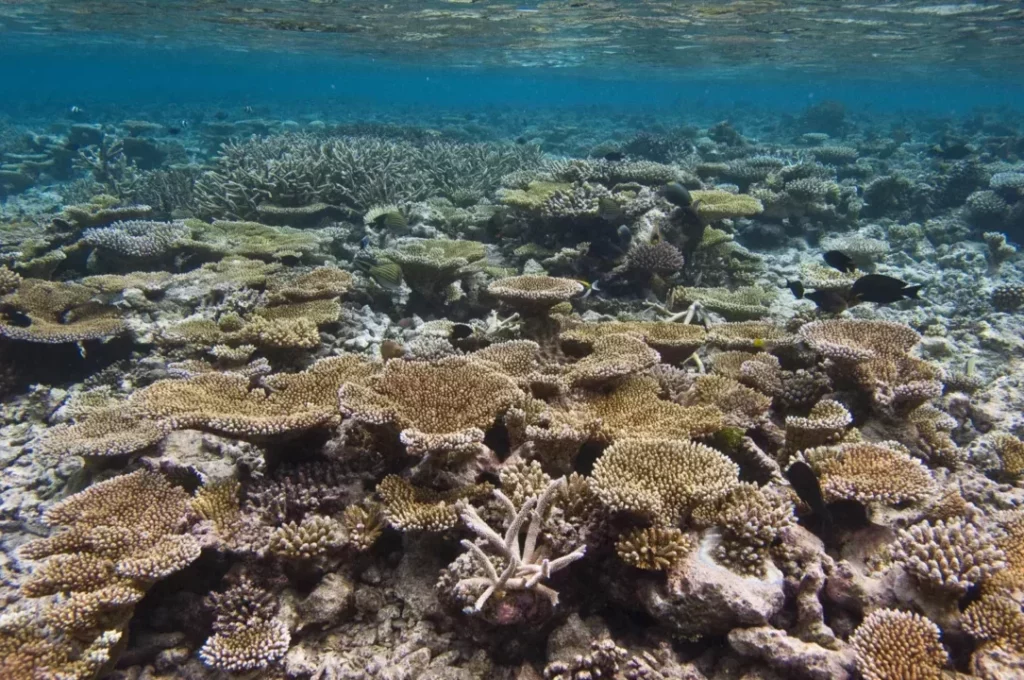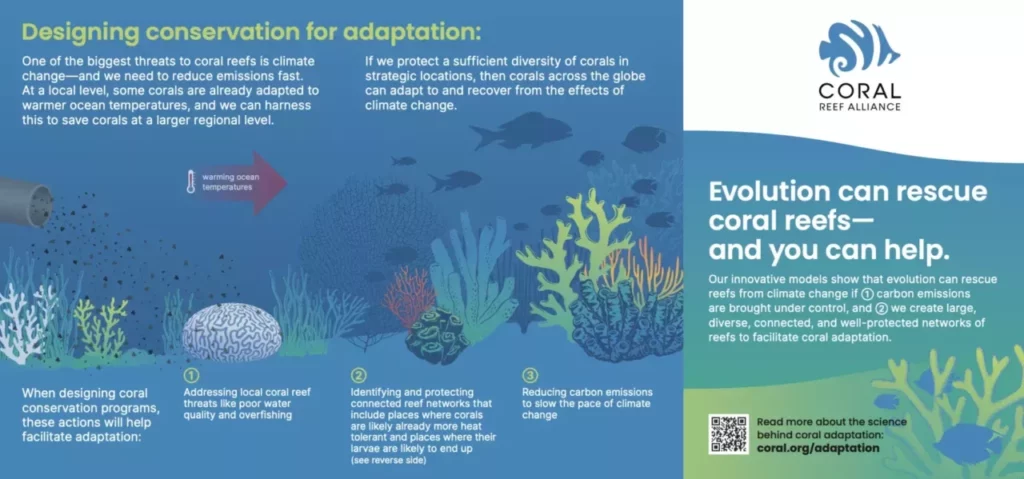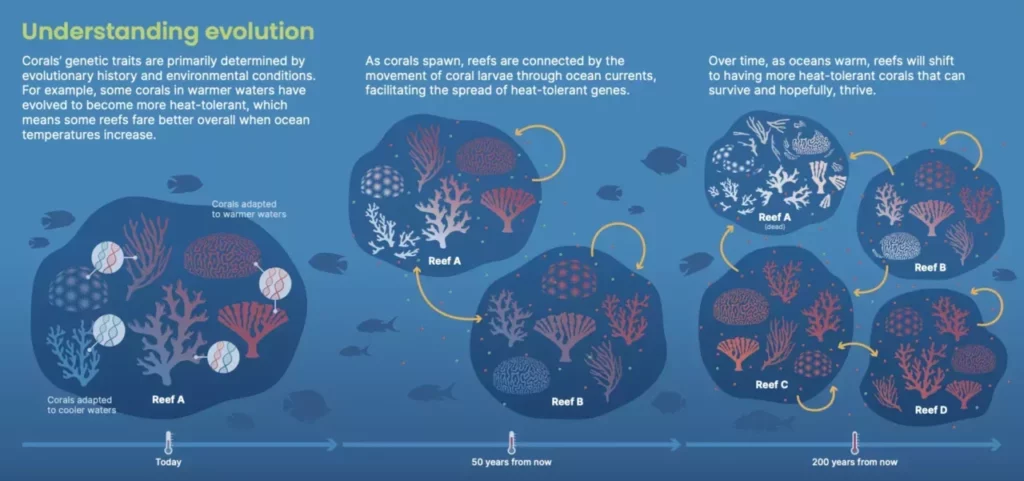In the face of escalating global warming and its devastating impact on coral reefs worldwide, scientists and conservationists are increasingly turning to evolutionary adaptation as a key strategy for coral conservation. Recognising the urgency of the situation, experts emphasise that safeguarding the future of coral ecosystems requires harnessing their inherent resilience and adaptability.

Coral reefs, home to a quarter of all marine life, are amongst the most diverse and productive ecosystems on the planet, however, rising ocean temperatures, combined with other stressors such as pollution and ocean acidification, have pushed many coral species to the brink of extinction. The effects of coral bleaching events have become more frequent and severe, leading to the loss of critical habitats for numerous marine species.
A recent study led by ICRI member the Coral Reef Alliance (CORAL), details that coral reefs can adapt to climate change if given the chance to evolve. The recent comment published in the journal Nature ecology & evolution called for evolutionarily informed coral reef conservation.
It is important to note that while corals possess these inherent adaptive mechanisms, including the ability to exchange thermotolerant genes when breeding, the severity and frequency of climate change and human-induced stressors, can outpace the rate at which corals can adapt. Therefore, human interventions and conservation efforts that aim to enhance the adaptive capacity of corals are crucial for their long-term survival in a changing world. The study advocates for a conservation approach that protects coral reefs at local, regional, and global scales, in a way that allows heat tolerance to spread.
While evolutionary adaptation is not a silver bullet solution, it holds significant promise as part of a comprehensive strategy to safeguard coral reefs.

